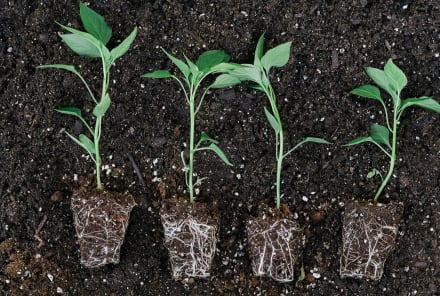Advertisement
Progress, Not Perfection: How To Find A Daily Sustainability Practice You Can Stick With


More than 25 years ago, I climbed Mount Kilimanjaro while spending a summer studying international environmental law in Nairobi, Kenya. I boarded a bus to Arusha, Tanzania, then started my trek up the famous, 19,341-foot mountain. I wasn't a climber. I was a policy geek, which is my nice way of saying that I wasn't physically fit (I could write killer legal memos, though).
Kilimanjaro is a different kind of climb. It's basically a walk. The guides told us to go slowly, to acclimate to the lack of oxygen at higher elevations. My classmates and I relished the journey as we enjoyed the views, took pictures, and laughed.
A group of ultra-fit British women were making the climb with another tour company. They always asked us how long it took us to get to the next hut, which was our destination each evening after an all-day hike. I remember one hiker laughed at us and said, "I cannot believe how slow you are." We didn't know these women. And why did they care how long it was taking us? It's not as if our pace was impeding their progress.
Eventually we reached the top of the mountain, Uhuru Peak. On our way down we learned that none of the Brits had reached the summit. Altitude sickness overcame them. They'd rushed to each hut but didn't let their bodies adapt to the oxygen-starved air.
As my Southern momma would say, bless their hearts.
What this experience taught me as an environmentalist.
I remember thinking that some people assume environmentalists have a similar attitude as those British hikers: If you're not doing it our way, you're doing it wrong. Or people believe environmentalists think, You don't belong here because you don't care enough, don't know enough, and don't understand the issues the way we do. My colleagues in the environmental movement are nothing like this, but many people have an understandable fear of being judged for "doing sustainability" wrong.
Then there's the enormity of the climate crisis itself. Heatwaves in the Pacific Northwest, tragic fires throughout the West, hurricanes, and floods in the Southeast, melting glaciers, and rapid species extinction around the world. How do we even begin?
You don’t need to look a certain way, buy certain products, or have solar panels on your roof to be a climate activist.
Because of climate change, the snows of Kilimanjaro are much different today than they were 25 years ago. It's true that we can't take it slow when dealing with this crisis. And the movement needs everyone—including you.
You don't need to look a certain way, buy certain products, or have solar panels on your roof to be a climate activist. We must reject all-or-nothing thinking and any perceived sense of perfectionism in this global movement. Everyone is welcome and everyone is needed.
Although the concept of an individual carbon footprint was first pitched by oil companies to shift the blame for the carbon crisis to us, it's also true that individual climate action is essential. We have to have systemic change for big solutions—like renewable energy at scale—but the culture shift and political will necessary only comes from individuals inspiring collective action.
The concept of a daily practice of sustainability can reduce your anxiousness about the future and bring more joy into your life, but it's not about being a puritan. It's about embracing the complexity of modern-day living but making an intentional decision to work toward being a better steward of the earth. We need to encourage everyone to get involved, starting today. These three steps can help you do so:
Find your strengths in service.
Take my Service Superpower Assessment (think of it like an Enneagram or Myers-Briggs for service) to discover how you show up for the people you love.
Create a daily practice of sustainability.
Start your 21-day plan of action based on your superpower profile. Take one step each day—a "one green thing" as I like to call it. It can be as simple as taking a walk outside, choosing a plant-based meal, or leaving a voicemail for your member of Congress. The daily action compounds and transforms into a powerful force for cultural change.
Track your joy.
Keep a journal and note what activities bring more joy to your life and what made the biggest impact on your family and community.
Above all, come as you are. Whether you are an ultra-fit Brit or an out-of-shape law student like I was, we need you in climate action. You belong in this movement. Your daily practice can shift the political will for the climate solutions we desperately need. Together, we can create a healthier, greener, more equitable future.
Adapted from an excerpt of One Green Thing: Discover Your Hidden Power To Help Save the Planet by Heather White (2022) with the permission of the publisher.












